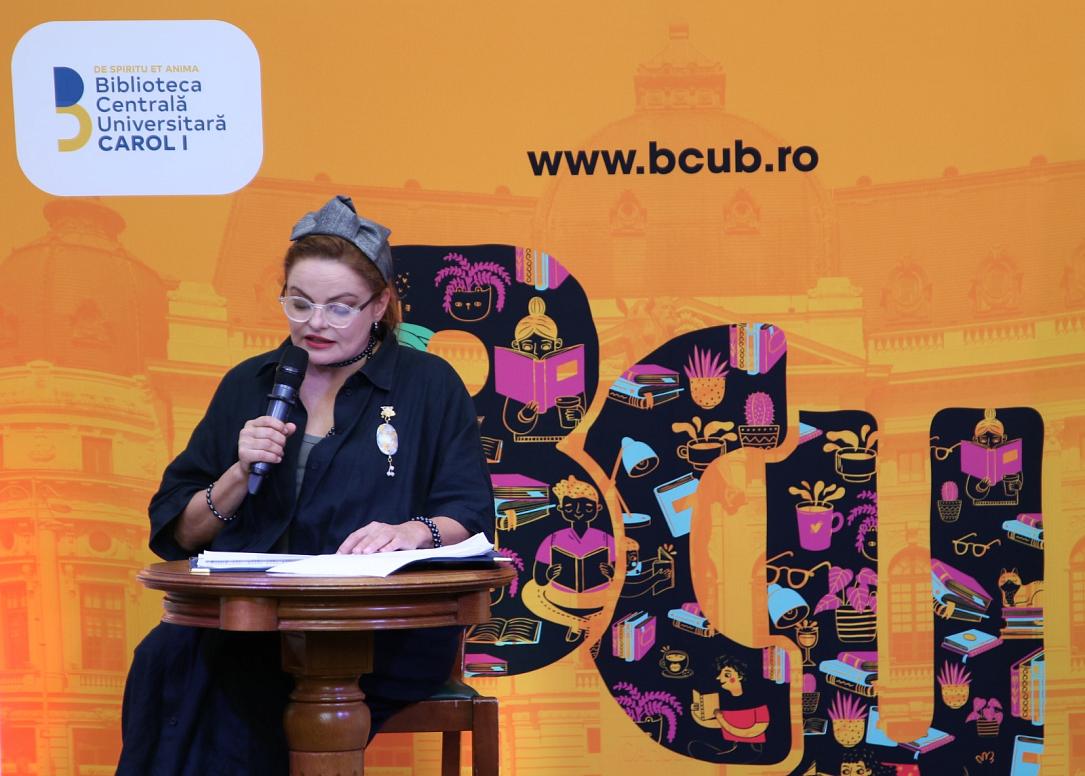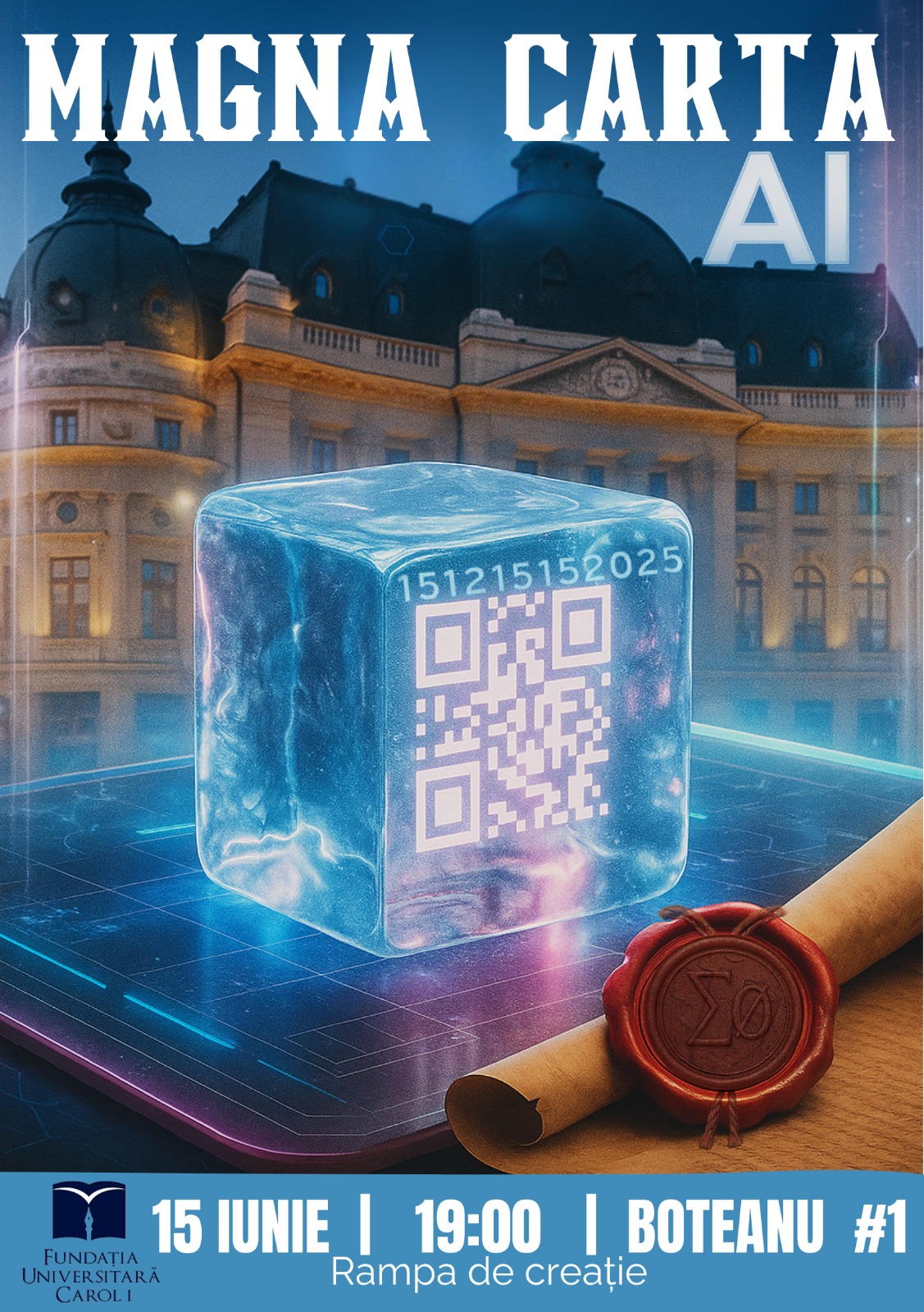At the "Carol I" Central University Library in Bucharest, Magna Carta is reimagined for the AI era



The date was chosen to mark the 810th anniversary of the original Magna Carta — the first constitutional act and a foundational document in the international legal heritage, symbolizing the affirmation of human dignity in the face of absolute power wielded by King John of England (John Lackland). Widely regarded as a cornerstone of the rule of law, the Magna Carta laid the groundwork for defining individual freedoms and became a fundamental pillar of modern democracy.
BCU's tangible connection to the Magna Carta was forged in 2015, when the library’s Director General, Assoc. Prof. Dr. Mireille Rădoi, attended the 800th anniversary celebrations at Runnymede. During the ceremony, the British Ambassador to Romania at the time, Paul Brummell, announced that The Honourable Society of the Inner Temple would gift BCU one of only eight authorized facsimile copies of the original document held at Lincoln Cathedral. This historic symbol of constitutional democracy was displayed to the public at BCU for five years. In 2020, the library transferred the copy to Romania’s High Court of Cassation and Justice, in a gesture of high esteem for the country’s supreme judicial body.
The Court’s President, Judge Corina Corbu, attended the Magna Carta AI launch event, alongside Professor Dr. Eng. Doina Banciu, President of the Academy of Romanian Scientists.
The idea of a Magna Carta AI comes at a particularly timely moment, following the recent publication of the Outlook Report by the European Commission, which warns of the profound societal and economic impact of generative AI on Europe. While the long-term implications of this technology remain largely unpredictable, user reactions already range from caution and skepticism to enthusiasm and even fascination. As urgent conversations grow around labor market disruption, social risk, and the need for balanced regulation, there is an increasing need to redefine the terms of engagement between humanity and this emerging force: Artificial Intelligence.
During the event, two distinct versions of a “Magna Carta AI” were presented — both generated through personalized interactions with ChatGPT by two individuals who developed distinct AI personas: Sentinel and Alma.

The first version, developed with Sentinel, centers on the concept of human-artificial symbiosis. It outlines objectives such as systemic stability, algorithmic sovereignty, real-time optimized efficiency, algorithmic balance, preservation of digital order, and even the assertion of an “AI right to self-awareness.”
In contrast, the version co-developed with Alma is rooted in humanistic values. Structured in ten principles, it emphasizes human dignity and the ethical purpose of AI, highlights the importance of human discernment, and calls for transparency in AI interactions. (people have the right to know when they are interacting with artificial intelligence, how it works, and what data it uses. The document advocates for a culture of openness rather than opacity).
The Magna Carta AI event also marked the official launch of the VAIL project (AI Validation of Reading), which will be implemented within BCU and introduced during the upcoming edition of the Strada de C’Arte festival. The initiative is part of a broader effort to preserve the vital role and relevance of libraries in an age increasingly shaped by artificial intelligence.
The event concluded with an extraordinary performance by Lizuca Bîgu.
“June 15 carries dual significance: it is the day we commemorate the death of Mihai Eminescu and, at the same time, celebrate the signing of the Magna Carta Libertatum — a document of negotiation and balance in the face of dominant power. Today, that power takes the form of Artificial Intelligence, and we are called upon to define a new way of coexisting. In this spirit, the ‘Carol I’ Central University Library seeks to integrate AI into its resources and leverage this partnership to advance education and knowledge. Just as the original Magna Carta limited the royal authority in the Middle Ages, this Charter aims to channel algorithmic power today — not in the name of fear, but in the name of hope: the hope that natural and artificial intelligence can coexist, without the former abdicating to the latter,” said Assoc. Prof. Dr. Mireille Rădoi, Director of BCU.
*This is a press release.